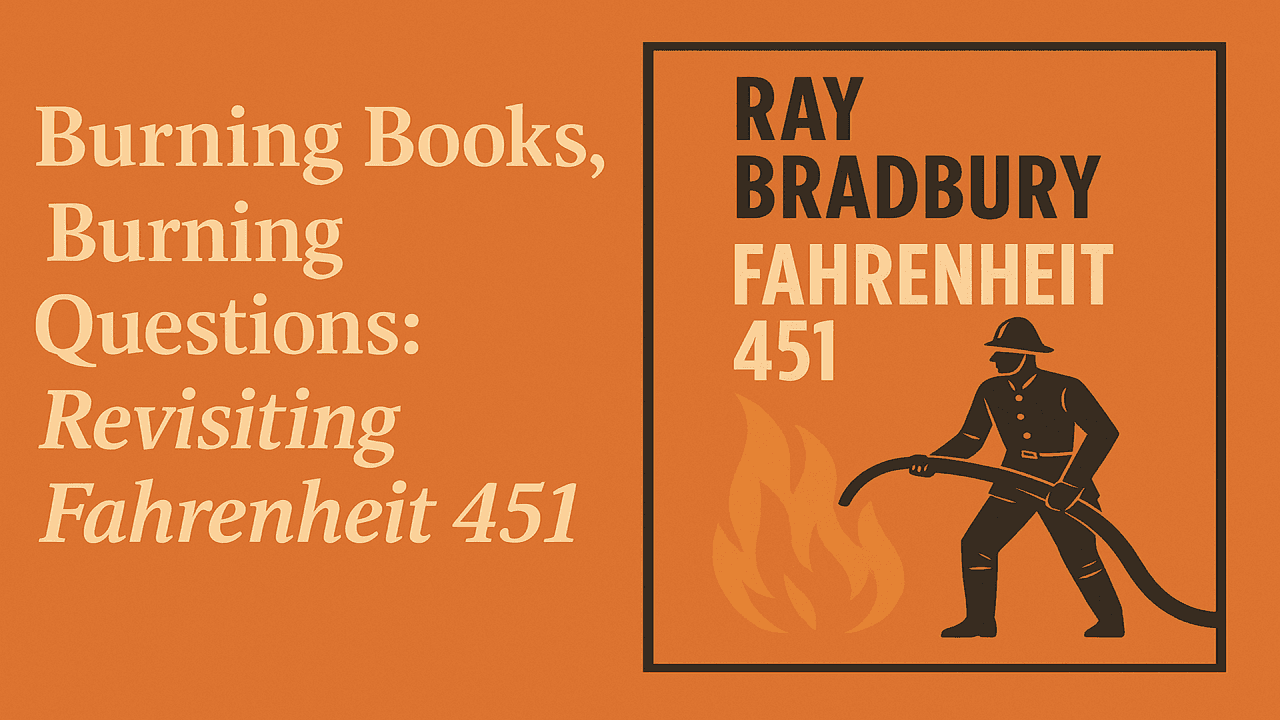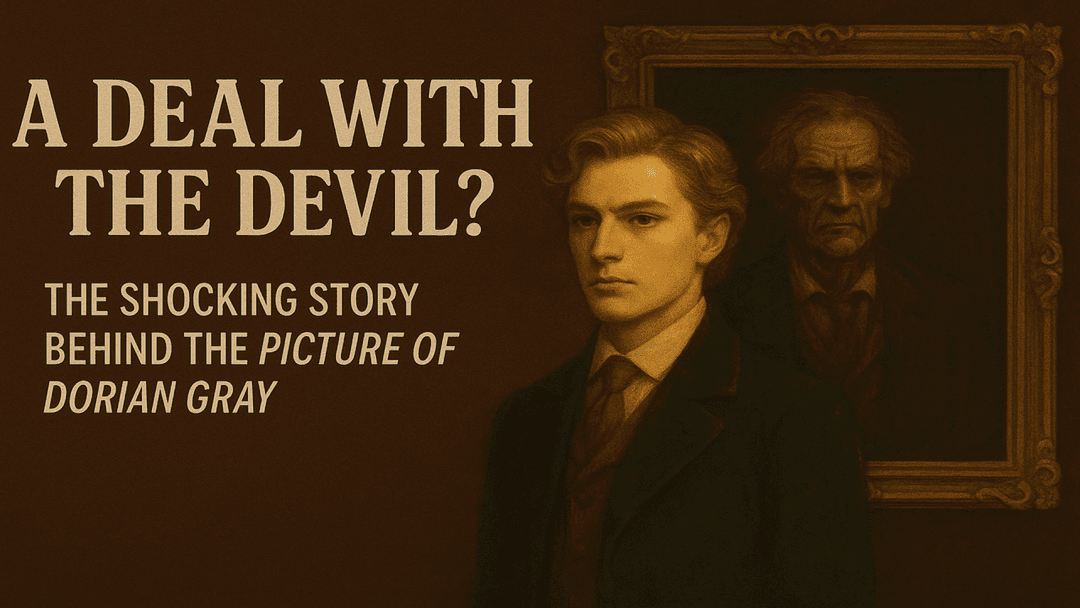"It Was a Pleasure to Burn."
With that chilling line, Ray Bradbury sets fire to more than just books—he scorches through apathy, censorship, and the death of critical thought. The words that open Fahrenheit 451 remain some of the most haunting in American literature, inviting us into a world where knowledge itself is considered dangerous.
Fahrenheit 451 transcends typical dystopian fiction; it's a mirror reflecting the darkest possibilities of our own world. In Bradbury's America of the future, books are banned and "firemen" burn knowledge rather than preserve it. Guy Montag, once a loyal fireman, embarks on a dangerous journey toward awareness—not armed with weapons, but awakened by words.
The Spark That Ignited a Masterpiece
Bradbury wrote the first draft of Fahrenheit 451 in just nine days, typing frantically in the basement of UCLA's Powell Library where he paid 10 cents per half hour to rent a typewriter. The novel evolved from his 1950 short story "The Fireman," expanding into a complex meditation on censorship, technology, and human connection.
The title itself refers to the temperature at which book paper burns—a scientific precision that underscores the methodical destruction of humanity's collected wisdom. Bradbury's genius lies in creating a world that feels both fantastical and frighteningly possible.
Why Read This Book Now?
In our age of endless scrolling, misinformation, and algorithm-curated truths, Bradbury's 1953 masterpiece feels eerily prophetic. His parlor walls—interactive room-sized screens where Montag's wife Mildred lives through fictional "families"—presage our screen-dominated culture with unsettling accuracy.
Bradbury didn't just warn us about government censorship—he cautioned against our own growing disinterest in depth, dialogue, and intellectual discomfort. As Captain Beatty explains to Montag, the public themselves demanded simplification: "Films and radios, magazines, books leveled down to a sort of pastepudding norm."
Bradbury's most chilling observation may be this: "You don't have to burn books to destroy a culture. Just get people to stop reading them." Consider that warning the next time your phone pings with a notification.
Moments That Burn Brightest
The Mechanical Hound – This relentless robotic hunter with its lethal needle represents technology turned against humanity—a warning about artificial intelligence that resonates even more powerfully today.
Clarisse McClellan – The curious seventeen-year-old neighbor who awakens Montag's consciousness by asking the simplest yet most profound question: "Are you happy?" Her appreciation for conversation, nature, and questioning represents everything their society has lost.
The Book People – The exiled intellectuals who memorize entire books to preserve them represent hope through human connection and oral tradition. Their commitment to becoming "living books" offers a powerful metaphor for the endurance of ideas beyond physical texts.
Burning Symbols
Fire – Transforms throughout the novel from a tool of destruction to one of warmth and rebirth, mirroring Montag's own evolution.
The Phoenix – Emblazoned on firemen's uniforms, this mythical bird reborn from ashes foreshadows the possibility of civilization's renewal after destruction.
The Hearth and the Salamander – The title of Part One references both domesticity (hearth) and a creature traditionally believed to survive fire (salamander), highlighting the tension between comfort and resistance.
Notable Passages
"We need to be really bothered once in a while. How long is it since you were really bothered? About something important, about something real?" — Ray Bradbury, Fahrenheit 451
"The magic is only in what books say, how they stitched the patches of the universe together into one garment for us." — Ray Bradbury, Fahrenheit 451
Discussion Points
- Is Fahrenheit 451 more relevant today than when it was written?
- How do Bradbury's "parlor walls" compare to our social media and entertainment systems?
- Are we voluntarily living in a version of Bradbury's dystopia?
- What book would you memorize to preserve if you joined the "book people"?
- Bradbury suggests three things missing from society: quality information, leisure to digest it, and freedom to act on what we learn. Which is most threatened today?
Share Your Thoughts
Tell us your favorite quote or moment from Fahrenheit 451. Has it changed how you view technology, media, or reading?
Discover the Joy of Reading with Classic Pages
Join a vibrant community where stories thrive, authors shine, and readers connect. Buy, rent, explore, and promote—all in one place.
📱 Now available on the App Store and Google Play. Download the Classic Pages app today and reshape the way you read.


